
The University of Palermo (UniPA) is the fourth research and education centre in Italy for number of students, with a consolidated cultural, scientific and teaching degree. Its 16 Departments cover the most important domains of contemporary scientific and technological knowledge. Moreover, its 21 specialized libraries and a huge museum system, together with a large campus close to the downtown of the city. For all these reasons UniPA can offer many facilities to TNA fellows interesting in the development of Religious Studies domain., covering all fields of studies, fostering an interdisciplinary approach.
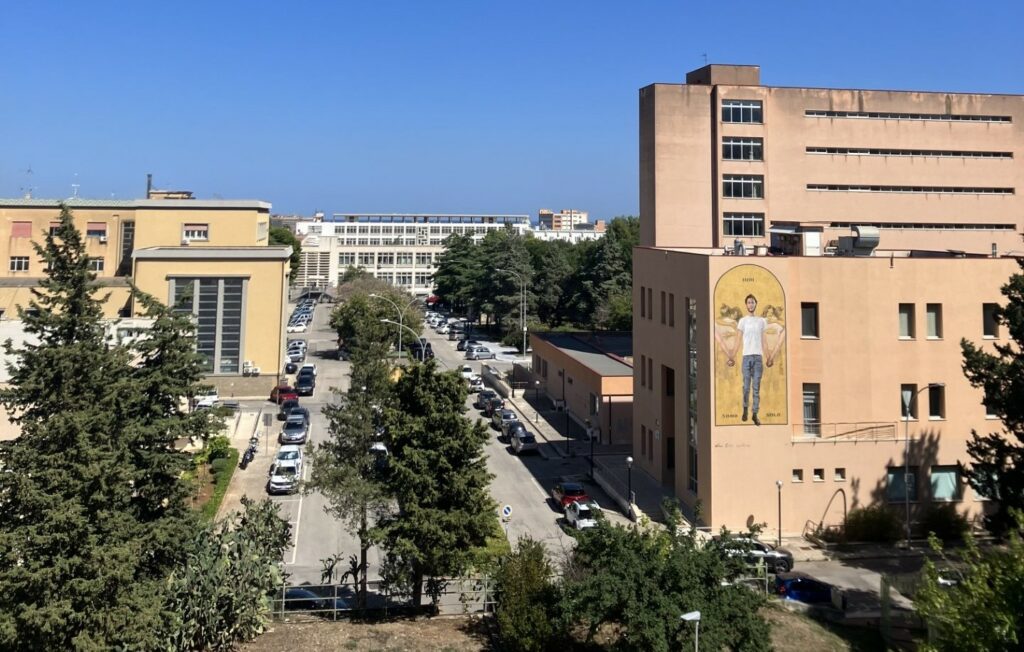
RESEARCH GROUPS
![]()
As one of the leading member of the Consortium, Unipa is involved within quite all WPs and particularly 5 Departments are actively involved within the ITSERR project and its Work Packages: Cultures and Societies, Law, Engineering, Architecture and Mathematics and Computer Science. By fostering an interdisciplinary approach, University of Palermo is contributing to the development of a great number of the ITSERR WPs, particularly WP3 (dedicated to the creation of critical editions of primary sources open-source software – named CRITERION – together with a software for the automatic analysis and categorization of printed religious normative sources through data mining techniques and 3D visualization, named GNORM), WP4 (whose objective is to develop software and algorithms that apply text understanding techniques to the investigation of semantic textual issues, using the translations of the Nicene-Constantinopolitan Creed as a case study), WP5 (whose focus is creating a digital cataloguing system for libraries specialized in religious studies that need to manage cultural heritage data in non-Latin alphabets, starting with the Arabic alphabet), WP6 (working on a tool – called YASMINE – using artificial intelligence to extract and analyze data and knowledge from various sources, including the web for use in religious studies research) WP7 (aim is to develop expert-augmented machine learning algorithms that can reconnect archival documents to their regesta (scholarly summaries), with a focus on ecclesiastical sources), WP8 (whose objective is to develop a machine learning search engine for identifying references to the Bible and the Qur’an in ancient commentaries and designed to search through two large corpora: Christian and Islamic commentaries).
Moreover, UniPa is highly involved in Religious Studies not only through the ITSERR project and its development within different fieldworks, but also through its didactic and courses of studies with programs and calendars of activities which ensure the organization of workshops and conferences with important scholars on Religious Studies.
–Master’s Degree in Religions and Cultures – organized by Unipa and FATESI (Pontifical Faculty of Theology of Sicily).
-The Italian Doctoral Program in Religious Studies (DREST), founded by fellowships, of which UniPa is a partner through and whose disciplines (Judaism, Christianity, Buddhism, Islam, Law and Religion) allow students to explore the spiritual, ethical and moral dimensions of this fieldwork.
LIBRARIES AND COLLECTIONS
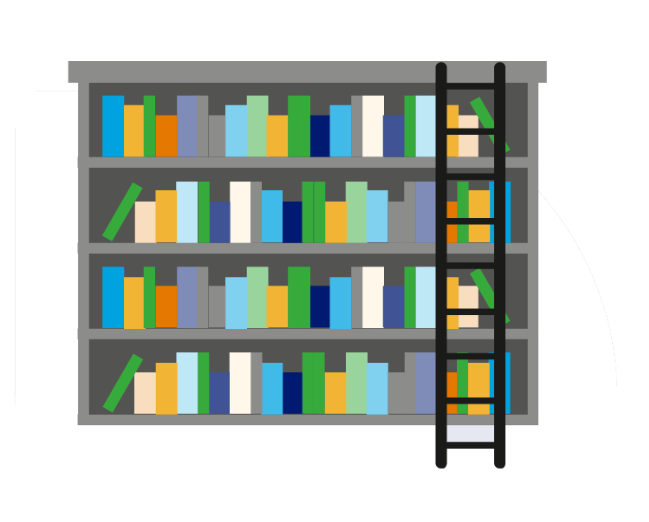
UniPa has 21 specialized libraries and a huge museum system related to the research led at University of Palermo all over the decades within the different fieldworks. Palermo libraries offer quality services: confortable reading rooms where the printed collections are availables (more than 1.500.000 documents.) and serveral on-line resources and tools.
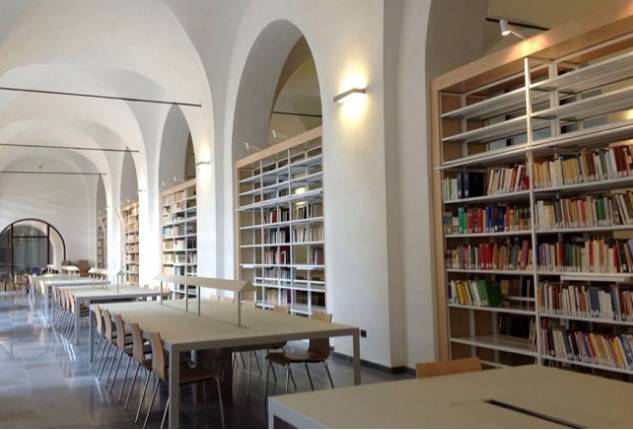
Library of the Humanistic Disciplines
This library located in the heart of the campus UniPa, was created after the reunion of different libraries dedicated to the Humanistic Disciplines. It is articulated in different sections:
Section I is dedicated to a wide group of disciplines, such as: Religions, Philosophy, Sciences of the Antiquities, Literature, Archivistic, Paleography and Diplomacy, Librarianship and Sciences of the Information’s, Teather and Cinema. This section includes also two specialized libraries dedicated to Philosophy and Modern History and to Linguistic and Languages.
Section II (Antiquities) is dedicated to the Sciences of the Antiquity and Classical Philology, as part of the great traditions of Studies related to this fieldwork, which represent a legacy of important scholars such as Bruno Lavagnini and Giusto Monaco who have been working here. Its wide librarian heritage is prominently dedicated to Greek, Latin, Byzantine and Modern Greek Languages and Literature, but also to Archaeology and Ancient History. This section includes also two specialized libraries on Languages and Linguistic, Philosophy and Medieval History, but also to Anthropology and Sociology.
Library “Law and Societies”
The library offer a wide selection of books and documents dedicated to disciplines such as: Law (general sources and National and International law), Doctrine, Social and Political Sciences, Philosophy, Anthropology and Sociology.
Credits: photos made by volunteers of National Civil Service within the Project “LA BIBLIOTECA SOCIAL: RISORSE, SERVIZI E STRUMENTI DA APPRENDERE E CONDIVIDERE IN RETE”
COLLECTIONS
The printed collection of the Libraries of UniPa are available prominently in the library’s reading rooms. They consist of more than 1.500.000 documents. Digital collections are made of over 33.000 journals, 330.000 e-books, e-journals. Being a TNA fellow at UniPa gives the opportunity to use access to the discovery service available for the community of this centre.
Castagna book collection
The Castagna book collection houses 3.680 volumes (monographies and partially journals) published between 1500 and 1830 whose main subjects are related to Linguistic, Italian, Greek and Latin Literature, Ancient Philosophy and Religion, Law. The collection has been catalogued according to the Aleph system (the OPAC of UniPa).
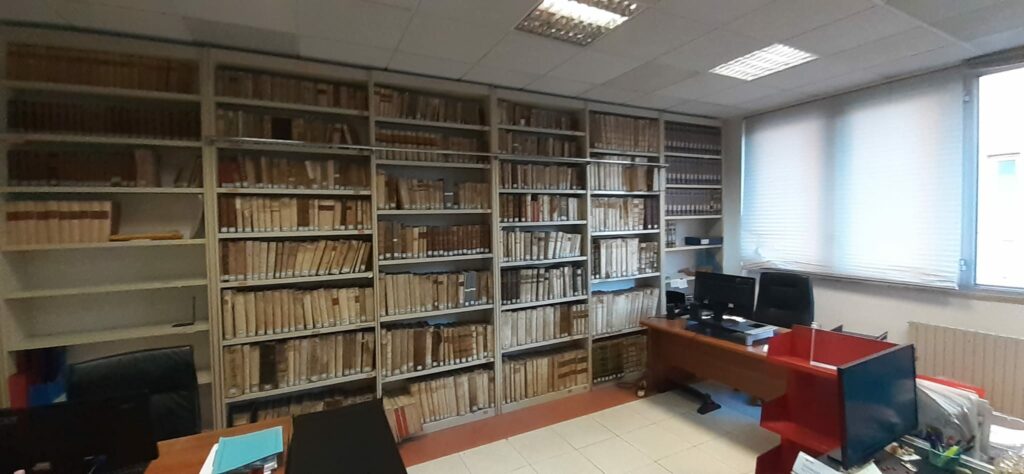
Moncada di Paternò Book collection
The Fondo Moncada Paternò houses 2536 volumes, published between 1500 and the Modern Era or after 1830. Moreover. This prestigious book collection has 800 volumes dedicated to Ancient and Modern Literature, History and Religion and published between the 17th and 18th centuries.Moreover, UniPa makes available for the users of its community a wide range of digital collections. Within the section “Digital collection for disciplines” it is possible to find bibliography on Religious Studies under the categories such as “Political and Social Sciences”; “Humanist Sciences”, or under the category “Multidisciplinars”.
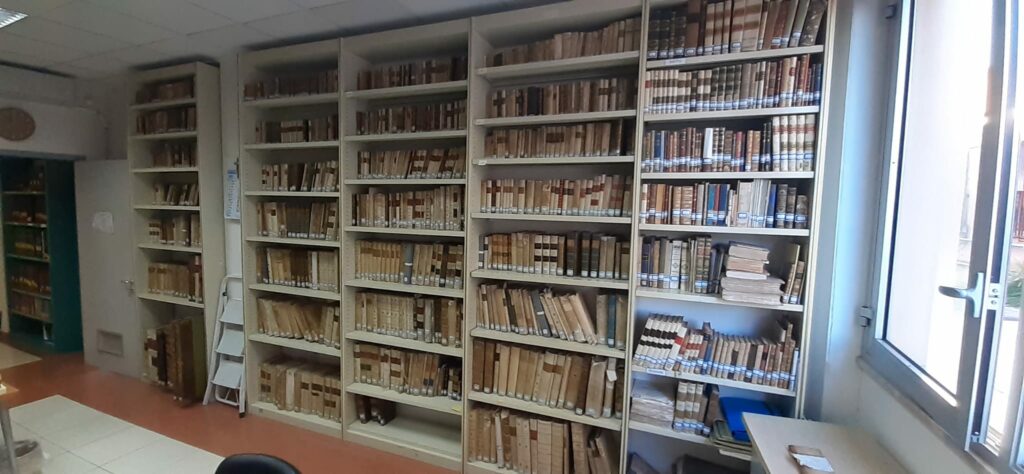
Credits: photos by Dr. Massimo Denaro (Chief of U.O. of the Library of the Humanistic Disciplines, s.I)
DATABASES

The libraries of the University of Palermo offer their institutional users and visiting and TNA scholars access to bibliographic, citation and full text databases. At UniPa you can access to EBSCO, which enable to know which articles have been published, by a specific author or research group, on the most important scientific journals, know what has been published on a specific research area or topic, Increase, update and deepen the bibliography on one’s own research work.
Moreover, the Libraries of the University of Palermo offers to its user’s community the access to bibliographic, citation and full text databases.
NATIONAL LIBRARIES AND MUSEUMS
![]()
The city of Palermo has a huge monumental and librarian heritage: discover it during your stay!
Please note that the following Institutions (except fot the “Giorgio La Pira” Library), are not included within our network of facilities connected to the access of ITSERR TNA, but we want to highlight their presence as we consider they could represent a further resource on the territory fwithin the domain of Religious Studies for your needs of research.
Giorgio La Pira Library
Giorgio La Pira Library is a specialised library on the doctrinal, linguistic, and cultural varieties of Islam. Modelled on FSCIRE’s seventy-year experience, it was born at the end of 2018 as a branch of the Dossetti Library. The Library currently has more than 21,000 paper volumes and approximately 900,000 works in digital format, of which more than 270,000 manuscripts, in addition to magazines in various Western languages, Arabic and Persian. Only one manuscript, a Koranic text from the 18th century, is in the library. This entire collection of books is the result of purchases and donations from public agencies and private individuals.
Diocesan Museum
The Museum was opened in 1927 and located at Archbishop’s Palace by Cardinal Archbishop Alessandro Lualdi. At the beginning the collection, selected by Monsignor Guido Anichini, housed prominently the sculptures that decorated the Cathedral, before it was transformed according to the neoclassical fashion based on a project by the Florentine architect Ferdinando Fuga at the end of the 18th century. Thus Renaissance and Baroque reliefs could be observed in the museum, as well as other finds from churches that had been destroyed or no longer used. Added to this was a significant loan of works from the National Museum of Palermo (now the Regional Gallery of Palazzo Abatellis) which included, among other things, paintings by Giorgio Vasari, Marco Pino, Bartolomeo Schedoni and Antonio Alberti, known as Barbalonga, the latter two still on display today.
Palazzo Branciforte
This important ancient palace of Palermo houses some relevant artistic collections of Fondazione Sicilia (archaeology, numismatic, ancient stamps, ancient majolica’s, sculptures of the 19th and 20th centuries and a library with approximately 50 thousand volumes. A large and varied section deals with the history of Sicily, history of art, coins and archaeology.Inside the spacious reading hall on the first floor, encyclopaedias, annuals and dictionaries can be consulted, as well as periodicals, miscellany and monographs on a range of different subjects. The library’s ancient library fund boasts many publications printed between 1501 and 1830. Two other estates of fundamental documental and historical importance are the Restivo Estate (donated by the heirs of Franco Restivo, the famous man of politics and Sicilian university professor, boasts approximately 8,000 volumes devoted to Sicily as well as to history, law, art, philosophy and literature)
“Central Library for the Sicilian Church in the Pontifical Sicilian Faculty of Theology San Giovanni Evangelista”
“Central Library for the Sicilian Church in the Pontifical Sicilian Faculty of Theology San Giovanni Evangelista” (FATESI). The collection is about theological, biblical and philosophical tomes, but also offers philological and historical documents with particular reference to Sicily.
The pieces of the valuable Antiquarian core Collection come mainly from the Seminary Library, at this moment being reorganised and housed in the 16th century Chapel of Santa Barbara. It consists of manuscripts, incunabula and a significant group of books from the 16th century. However, the most important collections are from the 17th and 18th century with around 12,000 volumes.
Municipal Library
The Palermo Municipal Library. The entire collection, of around 370,000 documents, makes it one of the most prestigious Libraries of Southern Italy. First in order of importance is, without doubt, the Martyrologium from the Chapel of San Pietro inside the Royal Palace, a parchment scroll dating from the 12t The Public Library also offers a service to a wider public through the OPAC of the PA1 Polo, which enables online consultation of catalogues.
Officina di Studi Medievali
The library is dedicated to the Medieval Studies and houses more than 42.278 volumes, catalogued within the OPAC system and a wide journal collection.
